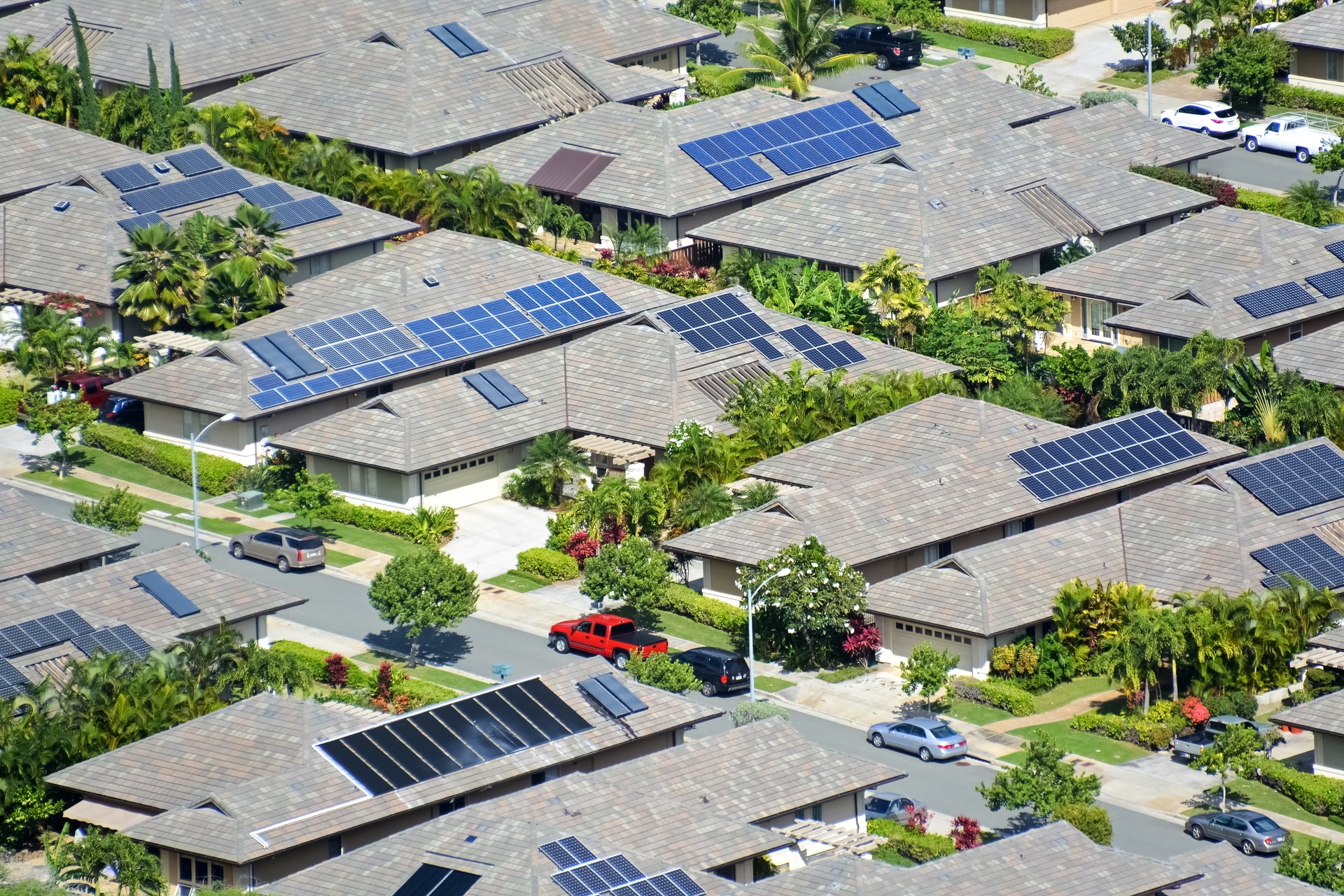When making home improvements to your home, you’ll probably ask yourself if you’re eligible for a tax deduction come tax season. Unfortunately, this question does not have a simple yes or no answer. Whether you qualify for a tax deduction depends on the specific improvements you’re making and how well you’ll keep track of all the expenses.
Home improvement is an umbrella term covering any substantial improvements you make to add value to your home. If your home is purely a personal residence, you can’t deduct the cost of improvements because it’s written off as personal expenses. However, this does not mean there’s no tax benefit for making major improvements.
Tax rules allow homeowners to add capital improvement expenses to the cost basis of their homes. This will come in handy when it’s time to sell your home. The greater the tax basis on your home, the less profit you’ll make when selling, meaning you’ll pay less tax.
What are Tax Deductions?
Tax deductions are a way to reduce your bill at tax time every year. Any tax deduction claim you make reduces your taxable income, so you’ll pay the IRS less when filing your taxes. Mortgage interest, charitable contributions, and student loan interests are typical examples of tax deductions individual taxpayers can claim.
Home improvements can make your space work better for you, but are they tax deductible? Not necessarily, it depends on the type of upgrades or repairs you make. This home improvements tax deductions guide explains which home improvements could get you a break at tax time, limitations to the amount you can write off and how you can maximize your dollars to cover costs.
Are Home Improvements Tax Deductible?
Home improvements fall into three categories: capital improvements, renovations for medical needs and energy-saving improvements. However, they’re generally not deductible if you use your home solely for personal reasons. Still, they can help you lower your tax liability if you turn a profit when selling your home since these improvements increase your tax basis or the amount you have invested in your home.
To illustrate, assume you purchased your home for $350,000 and later sold it for $650,000. However, you made improvements of $150,000 (that are still intact) during your stay, bringing your tax basis to $500,000. In this situation, you’d only have to pay taxes on a gain of $150,000. Even better, the IRS allows you to exclude up to $250,000 in gains on home sales, which means you wouldn’t owe capital gains tax on the sale, assuming you qualify for the home sale tax exclusion.
Below is a breakdown of home improvements that could help boost your tax basis.
Which Home Improvements are Tax-Deductible?
There are several tax-deductible home improvements. It all depends on whether the project you’re working on is a repair or an improvement.
According to the IRS, repairs are any modifications that restore your home to its original state. These minor repairs are, therefore, not tax-deductible. Improvements, on the other hand, are any home renovations that increase your property’s value. These will be deductible the year you sell your home.
The following are the main tax-deductible home improvements. If you aren’t sure if your project qualifies for a tax deduction, reach out to a tax advisor and get expert advice about filing your taxes.
1. Energy-Efficient Renovations
Home renovations that qualify as energy-efficient improvements are generally tax-deductible. The tax credit applies to 10% of the total cost for the energy efficiency improvements and expenditures incurred during that tax year. The credit applicable is limited to $500.
Installing a solar energy system in your home qualifies for a 30% credit of the total installation cost. It’s worth noting that the credit doesn’t only apply to your primary residence; it’s also available for new homes under construction. Most energy-efficient improvements are credited but not deducted in the same year. It’s advisable to get legal advice regarding your local taxes when it’s time to start filing.
Common home improvements that make use of renewable energy and are eligible for tax credits include:
- Solar panel installation
- Installing geothermal heat pumps
- Solar water heaters
- Using Energy Star-approved doors and windows
- Small wind turbines
2. Home Improvements for Medical Care
Any renovations to a medical home whose primary purpose is taking care of an ailing resident are fully deductible, even though the projects don’t necessarily increase the home’s value. In addition, if you’re installing medical equipment in your home for a dependent, you can include IRS medical expenses when filing taxes.
Tax-deductible medical care home improvements include:
- Building ramps for wheelchair access
- Modifying or lowering cabinets for easier access
- Adding grab bars for support in the bathroom
- Widening doorways and hallways
- Modifying smoke detectors and fire alarms
- Installing lifts from one floor to another
3. Home Office Improvements
Renovations and upgrades on your home office are eligible for a tax deduction if you principally run your business from home or regularly and exclusively use the space for work. Over the past couple of years, there have been significant changes in tax rules regarding home office renovations.
For instance, employees with an additional working space away from their employer’s premises are no longer eligible for tax deductions. Home office renovations are now deductible for self-employed individuals who run their businesses from home.
For those qualified for the tax break, repairs and upgrades are both eligible, provided they are made in specific parts of your home that you use for business. Improvements are tax-deductible with time as they depreciate, while repairs are deductible in the same tax year you complete them because they are considered essential to your business upkeep.
If you make any repairs or renovations whose benefits extend to your entire home, like roof repairs, the deduction will be calculated as a percentage. A percentage of the total renovation cost will be tax-deductible. The percentage is determined by the amount of space your home office occupies.
Which home office improvements are tax-deductible?
- Repairs made to your office space
- Improvements made directly to the office space
- Repairs made to other parts of the home (partially deductible)
- Some upgrades that benefit other parts of the house (partially deductible)
4. Rental Property Renovations
The tax rules governing repairs and renovations for rental properties can get complicated. For one, repairs qualify for a tax deduction. According to the IRS, they are necessary for property upkeep. Repairs on rental property are deductible the same year they’re completed, just like home office repairs.
Home improvements, on the other hand, depreciate over time. Improvements and home additions like kitchen remodels, indoor pools, bathroom renovations, appliance upgrades, and room additions generally increase the value of a property, so they are deductible over time.
Tax-deductible rental property improvements generally include:
- Repairs aimed at maintaining a habitable living space
- Home improvements and upgrades that increase property’s value (deductible over time)
5. Home Improvements for Resale Value
Major home renovations typically increase the value of your home. Capital improvements like fencing, adding a patio, or adding extra rooms usually increase the base cost of the property, prolonging its life and adapting it to new uses.
The home improvements you make for resale value can be deductible the year you sell the home. As such, it is paramount that you keep track of all expenses and itemize receipts so you can make a claim for tax deduction when the time comes. Your tax bill will be significantly lowered by the tax cuts you’ll get during the home sale.
Tax-deductible home improvements for resale value include:
- Building additions to the property
- Finishing the basement or an attic
- Adding new bathrooms
- Upgrading to a new furnace
- Installing a swimming pool
A working understanding of property taxes is necessary to take advantage of home improvement tax benefits. This way, you’ll make strategic decisions that qualify for tax benefits. When you’re in doubt, contact a tax professional and get professional help.
Tax-Deductible Home Improvements
Below, you’ll find a breakdown of home upgrades that are tax deductible.
Repairs
If you use your home for business purposes and have a tax-deductible home office, the cost of repairs is deductible. However, the amount is limited to the percentage of the home that’s taken up by business or rental use.
To illustrate, if you make $10,000 in renovations and use 15 percent of your home as an office, you can deduct $1,500. But if you rent out the entire home, you can deduct $10,000.
Home Office Renovation and Rental Property Renovations
The same rule applies to home office renovations. So if 10 percent of your home makes up the home office and you spend $5,000 renovating the space, you can deduct $500.
How to Claim Home Improvement Tax Deductions
You can claim qualifying home improvement tax deductions on your federal income tax return.







